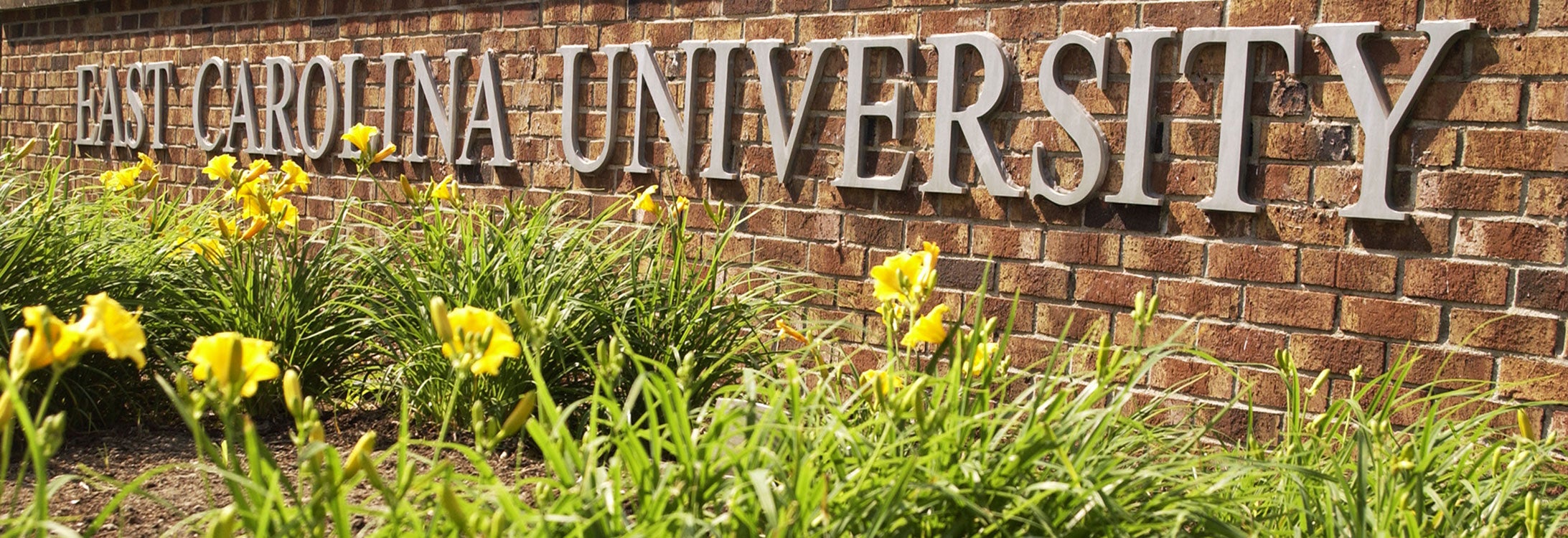Faculty & Staff
How to Report an Academic Integrity Violation
Maintaining the academic integrity of ECU is the responsibility of all members of the academic community. Faculty should ensure that submitted work accurately reflects the ability of the individual student. Students are responsible for promoting academic integrity in their own work and by reporting any suspected violations. A faculty member, student or university community member knowing of circumstances in which an Academic Integrity Violation may have occurred (or is likely to occur) should bring this knowledge to the attention of a faculty member or OSRR.
Faculty members addressing a potential academic integrity violation should review the full policy for specific procedures.
- Faculty member must notify the student in writing (word document template) of a suspected academic integrity violation and request a meeting within ten (10) calendar days of becoming aware of the suspected violation.
- The student has ten (10) calendar days to contact the faculty member and schedule a meeting. If the student fails to schedule the meeting or does not respond, the Academic Integrity Violation Form (AIV) may be submitted to OSRR.
- The meeting (word document) between the faculty member and the student is held to discuss the suspected violation(s). See section 3.2 of Appendix A: Academic Integrity Process and Procedures for information related to meeting notifications.
- The student and faculty member may have a nonparticipating observer at the meeting. FERPA waivers.
- The instructor evaluates all available information and decides if a preponderance of evidence supports the conclusion. The instructor must inform the student as well as OSRR of the outcome within ten (10) calendar days of the meeting.
- Students responsible: Instructor informs student in writing and completes the AIV form. Possible sanctions are summarized in the AIV regulation.
- Student not responsible: Instructor informs the student in writing, but no information is sent to OSRR.
- In severe cases in which the instructor believes a failing grade in the course alone is inadequate disciplinary action, the instructor will recommend to OSRR that the case be forwarded to the University Committee on Academic Integrity (UCAI) for additional sanctions, such as separation from the university. In this case, the faculty member must still issue an academic penalty in the course.
- Upon receipt of the AIV form from the instructor, OSRR will notify the student, in writing, of the instructor’s decision. The student may appeal the decision. OSRR will communicate with the instructor and student regarding the appeal process.
- If a student does not appeal, OSRR may elect to meet with the student to discuss the AIV and/or assign additional educational sanctions such as an educational conversation or an educational module. See section 4 of Appendix A: Academic Integrity Process and Procedures for additional sanctions related to the AIV process.
Academic Integrity Educational Resolution Process
In some instances, a faculty member may deem it best to approach a potential matter involving academic dishonesty as a learning opportunity. In such cases, a faculty member may require that a student complete additional work in order to better understand the severe nature of academic dishonesty and learn ways of avoiding future infractions.
If at any point, however, the faculty member determines that a grade reduction or other substantial academic penalty is merited in the case, either as a result of the initial infraction or as a result of a student not sufficiently completing the additional work agreed to, she or he must follow the process outlined in the Faculty Manual, including reporting the situation to the Office of Student Rights and Responsibilities for its review and handling.
If the circumstances warrant such, the faculty may choose to use an Educational Resolution Alternative (ERA). This is a mutual determination between the faculty and the student acknowledging that a violation has occurred and both parties agree to an educational resolution. This incident will serve as an FYI only and will be stored within the Office of Student Rights and Responsibilities (OSRR) database.
Faculty members may fill out the Academic Integrity Educational Resolution form and upload the Academic Integrity Educational Resolution Agreement (PDF) to the submission.
Upholding Academic Integrity
Faculty Resources
- Paraphrasing Activity: This activity, from the Purdue Online Writing Lab, can be a helpful tool in teaching students how to appropriately paraphrase. You can assign this as an in-class assignment or provide it as a helpful resource to students on blackboard.
- Syllabus & Test Statements: Setting clear expectations with students via your syllabus (PDF) is important. When discussing academic integrity, it is best to share your obligation (and student’s obligation) to report as well as sharing the specific ways in which a student can violate ECU Academic Integrity (included in the ECU Faculty Manual). Lastly, outlining your standard grade penalty if the student is found responsible by the Office of Student Rights & Responsibilities can be a helpful deterrent to academic dishonesty behavior.
Dealing with Disruptive Behavior
While some classroom disruptions can be signs of a student in distress, many are simply acts of ignorance or disrespect that do not indicate a higher level of concern. Please visit the Dean of Students website for a helpful guide on managing classroom disruptions, including differentiating between classroom disruptions from concerning behaviors.
Setting expectations for how you will deal with disruptive behavior is critical. In the event that you encounter a disruptive situation, this information can assist you in addressing the concern.
Click here for more information on academic disruptions.
